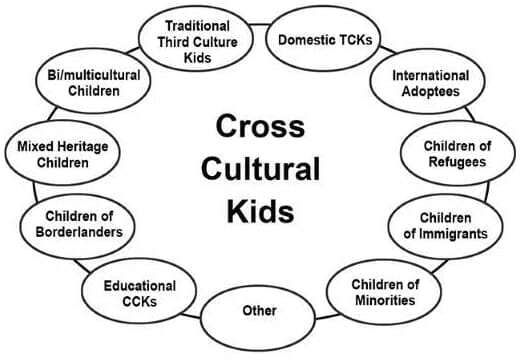Cultural Identity and Multicultural Experiences
Both my parents are Taiwanese and I was born and raised in Taiwan before moving to NZ for a significant period of my early adulthood after high school. I hold two passports and dual citizenship from two different continents.
My nephew, 11-year-old, who has a Taiwanese mum and a British dad, was born in China, had lived in China until he was 6, and then the family made a move to Ireland, a place where he will finish his high school then will pursue his tertiary studies elsewhere again. He spends Christmas in England, summer in France, Chinese New Year in Taiwan, and has family dinners in 2-3 languages. These are just a couple of very common examples of people living between cultures either alone or with the family. My multicultural professional counseling work with immigrants, international students, local people, and also my own personal social connections with diverse groups provide me a very rich insight into TCK and CCK.

Jenny Hsu
is a New Zealand-trained and registered counselor experienced in working with the immigrant, expat, and international student populations. Jenny has worked extensively in New Zealand, and was the school counselor for Taipei European School for many years, advising students of various ethnicities. Hsu is dedicated to collaborative therapies and helping people view their identity as separate from their problems.
I’ve heard them talking about leaving pieces of their hearts in places they’ve lived but instead of losing pieces of their heart, they build strengths that non-TCK/CCK don’t have. Yes, saying goodbye hurts but they also learn how to say hello. We can encourage them to acknowledge that moving is hard and be kind to themselves. I have come to understand that I need time to grieve when I move between cultures even now as an adult and that’s why TCK/CCK especially needs that extra care and we need to be sensitive to their grieving process at this young age. It’s the resilience skill they are processing and it needs adults’ support during their transition so they know it should be seen as a change, an adaption in their life not as a traumatic experience or memory.
Most of the TCK/CCK don’t have a choice when their parents decide to move whether it’s for work purposes or other personal reasons.





Leave a Reply